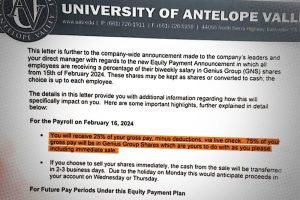According to recent data from the Federal Reserve Bank of New York, over half of recent college graduates are currently underemployed. This alarming statistic highlights a concerning trend among young adults who have invested time, money, and effort into obtaining a four-year degree, only to find themselves working in jobs that do not require a college education.
Underemployment is defined as working in a job that does not utilize the skills or education obtained from a college degree. This can manifest in several ways, such as working part-time when seeking full-time employment, accepting a job below one’s education level, or working in a field unrelated to one’s degree.
The reasons behind this widespread underemployment among college graduates are varied. One major factor is the oversaturation of the job market with college graduates, leading to fierce competition for limited opportunities. In addition, the mismatch between the skills acquired in college and the skills demanded by the job market can also contribute to underemployment.
Furthermore, the rising cost of college tuition has led many students to take on significant amounts of student loan debt. This financial burden can force recent graduates to accept any job that pays the bills, even if it does not align with their career goals or educational background.
The consequences of underemployment are far-reaching and can have a significant impact on an individual’s financial stability and career trajectory. Working in a job that does not utilize one’s education and skills can lead to feelings of frustration, disengagement, and disillusionment. It can also hinder opportunities for career advancement and higher earning potential in the future.
To address this issue, it is crucial for college students to carefully consider their career goals and the job market demand before choosing a major. Seeking out internships, co-op programs, and other experiential learning opportunities can also help students gain practical skills and experience that are valued by employers.
Additionally, policymakers and educational institutions must work together to ensure that college graduates are prepared for the demands of the current job market. This may require changes to the curriculum, increased access to career counseling services, and partnerships with industry to provide relevant training and job placement opportunities.
Ultimately, addressing the issue of underemployment among recent college graduates requires a multi-faceted approach that involves collaboration between students, educators, policymakers, and employers. By working together, we can help ensure that college graduates are able to secure meaningful and fulfilling employment opportunities that align with their education and career aspirations.



